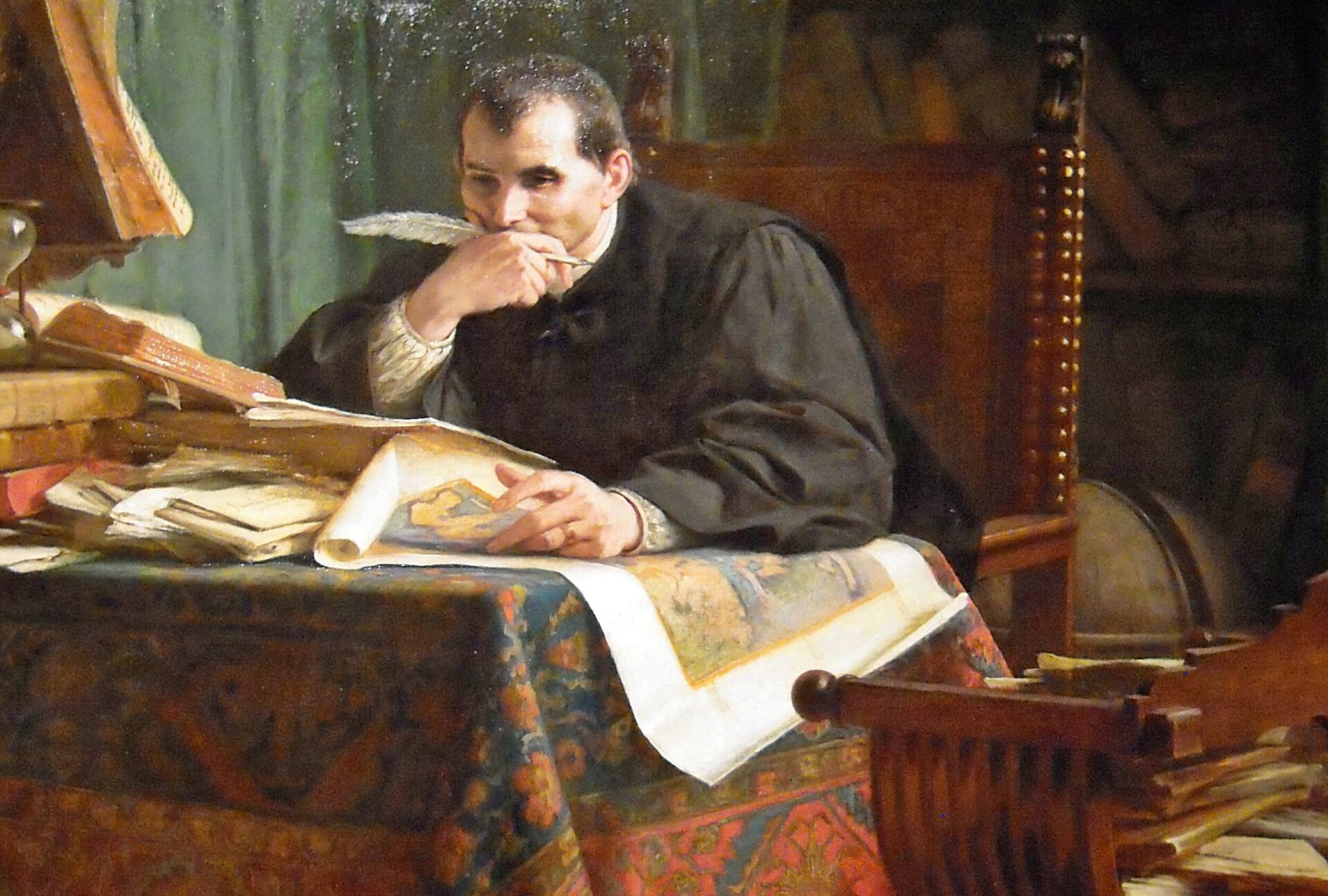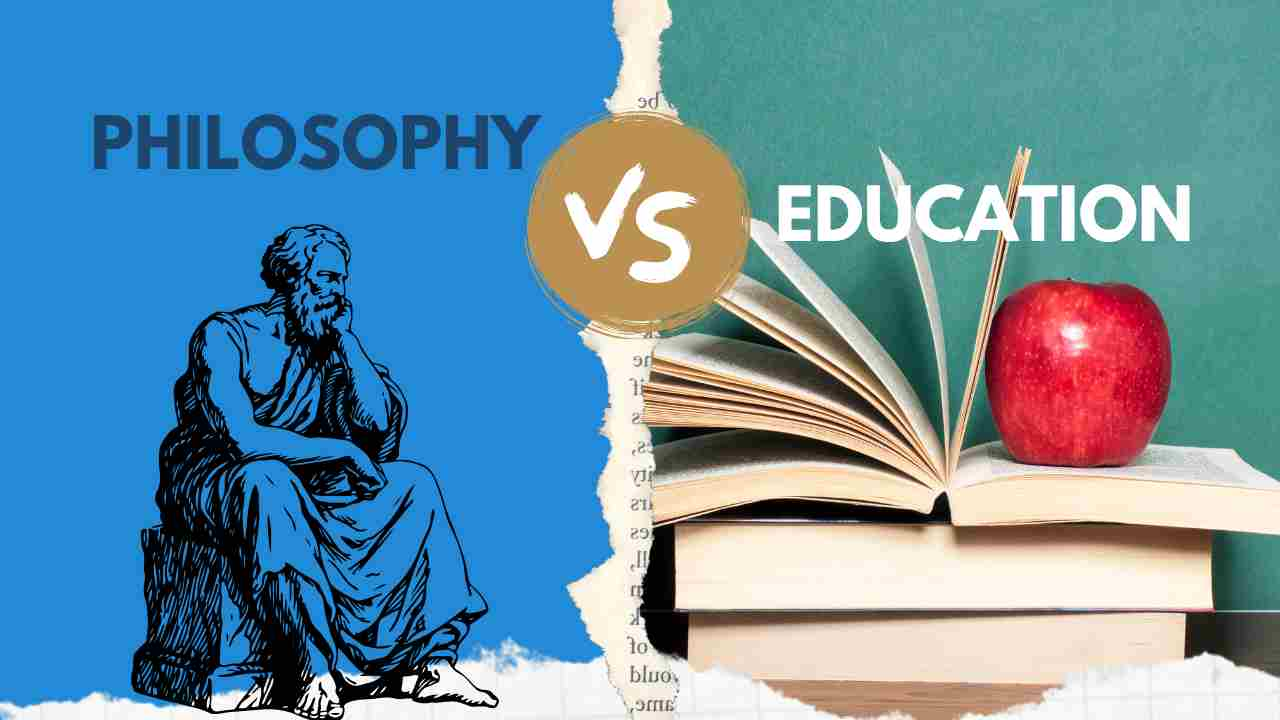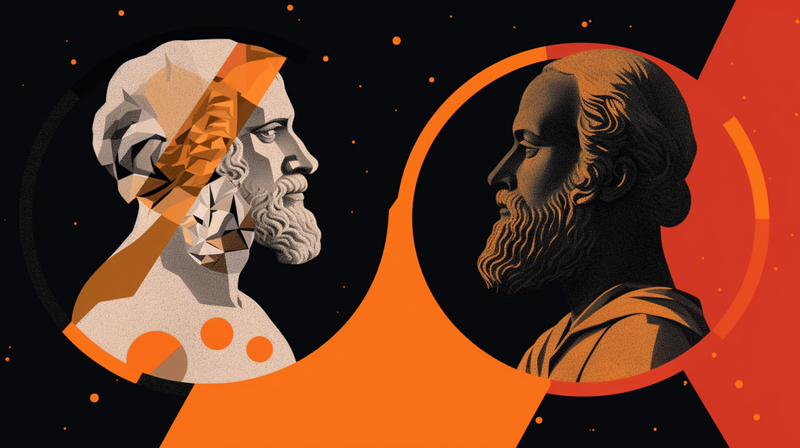Niccolò Machiavelli, the renowned Italian diplomat, philosopher, and political theorist of the Renaissance era, continues to exert a profound influence on modern politics. His seminal work, “The Prince,” written in the early 16th century, has been a touchstone for politicians and statesmen across the centuries. Children in schools learn a lot about his impact on society, and with the help of a homeschooling tutor in Bettendorf, they can master this knowledge in creative and interesting ways. In this exploration, we delve into Machiavelli’s enduring impact on contemporary political thought, from the realms of diplomacy to the nuances of statecraft.
THE PRINCE: NAVIGATING THE MACHIAVELLIAN REALM
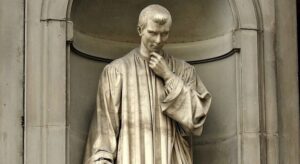
Machiavelli’s “The Prince” stands as a foundational text that has transcended its temporal origins. The work, ostensibly a guide for rulers, is an unapologetic exploration of power dynamics and pragmatic governance. Machiavelli’s perspicacious observations on leadership and the pursuit of political objectives have found resonance in the corridors of power worldwide.
Machiavelli, in his characteristic directness, emphasizes the importance of political realism. The active voice in his writing underscores the need for leaders to take decisive actions, unencumbered by moral idealism. He argues that leaders must adapt their strategies to the ever-shifting landscape of politics, embracing both cunning and force when necessary.
Machiavelli’s influence is particularly evident in the modern approach to diplomacy. Leaders, drawing from his principles, recognize that diplomacy is not solely about lofty ideals but a strategic game where national interests are paramount. However, diplomacy is more than that, it is also a strategic move that selling business advisors point out to their clients during business planning and development. The Machiavellian perspective urges states to navigate the international arena with a keen awareness of power dynamics, alliances, and the inherent uncertainties of geopolitical interactions.
REALPOLITIK AND THE MACHIAVELLIAN STRATEGY
In the contemporary political landscape, the symbiosis between Realpolitik and Machiavellian strategy manifests as a nuanced paradigm, reflecting the dynamic interplay between power, diplomacy, and global dynamics. The active voice echoes through the corridors of geopolitical maneuvering, emphasizing the imperative for leaders to engage with Realpolitik as a pragmatic framework for decision-making.
In the intricate dance of nations, Realpolitik guided by Machiavellian principles takes on new dimensions. The active voice empowers leaders to confront the complexities of an interconnected world, where the pursuit of national interests necessitates multifaceted strategies. Machiavellian adaptability becomes the linchpin in crafting responses to geopolitical challenges that transcend traditional boundaries.
The Machiavellian strategist, employing the active voice, embraces Realpolitik not as a rigid doctrine but as a flexible toolkit. In navigating alliances, conflicts, and the pursuit of strategic advantages, leaders recognize that the Machiavellian ethos is not a one-size-fits-all approach. Instead, it is a dynamic framework that demands continuous assessment, recalibration, and an astute understanding of the ever-shifting currents of global politics. These changes can greatly affect the development of business in the countries, so it is not a bad idea to keep in mind the geopolitical situation of the country you are traveling to when you decide to rent a car in Beograd.
This fusion of Realpolitik and Machiavellian strategy redefines the contours of statecraft in the contemporary era. Leaders, guided by the active voice and pragmatic wisdom, engage in a delicate dance where the pursuit of power is tempered by strategic finesse. In navigating the complexities of international relations, the Machiavellian strategist within the paradigm of Realpolitik seeks not only to secure national interests but also to navigate the intricacies of a globalized world where alliances are fluid, challenges are multifaceted, and adaptability is paramount.
FROM MACHIAVELLI TO GEOPOLITICAL REALITIES
The science tutor in Boulder tries to explain to the children the essence of this view using concrete examples throughout European history. As we traverse the annals of history, Machiavelli’s influence extends beyond the realm of statecraft into the intricacies of geopolitical realities. The active voice permeates discussions on global power dynamics, where nations jockey for influence and navigate the complexities of a multipolar world.
Machiavelli’s emphasis on the importance of military prowess as a cornerstone of political strength reverberates in contemporary debates on defense and security. Nations invest in robust military capabilities, cognizant of the Machiavellian notion that the ability to defend one’s interests is foundational to political stability.
In the diplomatic arena, Machiavelli’s influence is evident in the strategic calculus that shapes international relations. The absence of sentimentality in his writings underscores the pragmatic approach nations adopt as they negotiate treaties, navigate conflicts, and vie for strategic advantages on the global stage.
TECHNOLOGICAL ADVANCEMENTS: A MACHIAVELLIAN PERSPECTIVE
In delving further into the Machiavellian perspective on technological advancements, we unravel a profound connection between the strategist’s teachings and the complexities of the digital age. Machiavelli’s shrewd understanding of power dynamics aligns seamlessly with the contemporary challenges and opportunities presented by technology.
In the realm of cybersecurity, Machiavellian principles find resonance as nations recognize the vulnerability of their digital domains. The active voice of defense echoes in strategies to safeguard critical infrastructure and sensitive information, acknowledging that a Machiavellian leader must not only wield power but also protect against potential threats, ensuring the durability of their rule. The Internet provider that manages IT services in San Antonio places an extremely high level of protection on its network, which is extremely important in today’s time when everyone is on the Internet.
Moreover, Machiavellianism extends into the realm of information warfare, where the manipulation of narratives and the dissemination of propaganda play pivotal roles. The active voice becomes a tool for shaping public perception and influencing global opinion. Machiavellian leaders leverage digital platforms, recognizing them as arenas for strategic communication and influence, echoing the philosopher’s emphasis on the importance of maintaining control over information dissemination.
As artificial intelligence and machine learning advance, the Machiavellian strategist confronts new possibilities and challenges. The active voice becomes a directive in navigating the ethical considerations surrounding the use of autonomous technologies. Machiavellian leaders grapple with questions of accountability and strategic advantage, understanding that mastery over cutting-edge technologies is a double-edged sword that demands both sagacity and adaptability. Colorado Springs SEO companies are wisely using these technological advancements to promote their clients on the airwaves of internet platforms.
In the Machiavellian perspective on technological advancements, the active voice emerges not only as a call to action but as a guiding principle in mastering the tools of the digital age. Machiavelli’s wisdom, transplanted into the realm of cyber strategy and technological innovation, underscores the imperative for leaders to wield these tools with both cunning and foresight, ensuring that the machinations of the digital realm align with the timeless principles of political pragmatism.
THE INTERPLAY OF ECONOMICS AND MACHIAVELLIAN STRATEGY
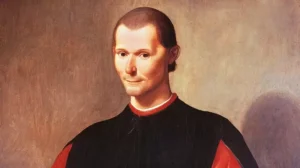
Machiavelli’s influence on modern governance extends seamlessly into the intricate interplay between economics and strategic statecraft. In the 21st century, the global economy is both a battleground and a tool for Machiavellian leaders. The active voice in Machiavelli’s writings resonates with the economic pragmatism required for nations to secure their positions on the world stage.
Within the realm of international trade, Machiavellian leaders strategically wield economic policies as instruments of power. The active voice reverberates in discussions surrounding tariffs, sanctions, and trade agreements, where nations vie for economic leverage and seek to bolster their geopolitical standing. Machiavellianism in economics emphasizes not only the pursuit of wealth but also the strategic deployment of economic tools to achieve political objectives.
Moreover, the Machiavellian lens extends to considerations of economic resilience and self-sufficiency. Leaders recognize that economic strength is a pillar of national power, influencing both domestic stability and international influence. Machiavellian strategies in economics involve diversifying resources, securing key industries, and utilizing economic prowess as a means to project strength on the global stage. The mortgage company in Raleigh NC has this in mind and positions its real estate in the best way.
In the contemporary geopolitical landscape, where economic interdependence is the norm, Machiavellian leaders navigate a delicate dance, balancing economic partnerships with the imperative to safeguard national interests. The active voice echoes in the crafting of economic policies that prioritize strategic advantage, reflecting the ever-evolving nature of Machiavellian thought in the multifaceted arena of modern governance. A business lawyer in Dubai can be a good advisor in the matter of geopolitical positions and how they can be diverted by an economic venture.
MACHIAVELLIAN ETHICS: A CONTEMPORARY REAPPRAISAL
While Machiavelli is often associated with an amoral approach to politics, the evolution of ethical considerations in modern governance prompts a reevaluation of his stance. The active voice in his writings, devoid of moralizing, aligns with the pragmatic ethos of Machiavellianism. However, contemporary leaders face a delicate balance, navigating the complexities of ethics in an era of heightened transparency and public scrutiny. The goal is to protect the right values in addition to free speech, and such state secrets are usually strictly guarded by access control systems from Philadelphia for the leaders to maintain balance.
In the realm of Machiavellian ethics, the contemporary reappraisal involves a nuanced understanding of the interplay between power and responsibility. The active voice is not a callous dismissal of ethical considerations but rather a recognition that the pursuit of political objectives requires strategic decision-making, often in morally gray areas.
Leaders today grapple with ethical dilemmas that transcend traditional political boundaries. Machiavellian ethics, as reappraised in the modern context, acknowledges the imperative of ethical governance without succumbing to idealistic impracticality. The active voice, while resolute, reflects the thoughtful calibration of ethical considerations in the pursuit of national interests. This contemporary reassessment of Machiavellian ethics underscores the evolving nature of governance in a world where the public’s expectations for ethical leadership are high, and leaders must navigate the delicate balance between pragmatism and moral responsibility. The great pressure is not only on national leaders but also on leaders of companies or any movements, and online courses where this technology of governance is studied in detail and applied to today’s times are highly recommended.
BEYOND THE NATION-STATE: MACHIAVELLIANISM IN INTERNATIONAL ORGANIZATIONS
The evolution of Machiavellian principles extends even further into the realm of international organizations, where the dynamics of power, influence, and strategic maneuvering take on a nuanced complexity. Machiavellianism, traditionally associated with statecraft, finds a new dimension within the intricate structures of global governance. Readathon school fundraiser through simplified texts for children tries to explain and introduce young people to this concept through the promotion of reading.
In the context of international organizations, the active voice in Machiavelli’s writings reverberates through diplomatic negotiations and the pursuit of collective interests. Nations, operating within these complex frameworks, employ Machiavellian strategies to secure advantageous positions, form alliances, and navigate the delicate balance of power-sharing.
The Machiavellian diplomat within international organizations is characterized by a keen awareness of the shifting tides of geopolitical influence. The active voice guides negotiations, emphasizing assertiveness and strategic acumen. Machiavellian leaders, cognizant of the constraints and opportunities within these multilateral forums, adeptly wield their influence to shape agendas and policies in alignment with their national objectives. Due to the constant movement in the world of geopolitics to keep up with the developments in each area, activists use roadside assistance apps to ensure their safe travel across states.
As international organizations become increasingly central to global governance, Machiavellianism adapts to the intricacies of this interconnected landscape. The active voice, indicative of purposeful action, underscores the diplomatic agility required to navigate the diverse array of actors, interests, and challenges inherent in the international arena. The Machiavellian diplomat, whether in the United Nations, the European Union, or other global bodies, remains a discerning architect of strategic influence, employing cunning and foresight to navigate the ever-evolving dynamics of international relations.
THE FUTURE OF MACHIAVELLIANISM: ADAPTING TO UNFORESEEN CHALLENGES
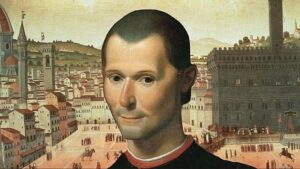
As we peer into the future, the question arises: How will Machiavellian ideals continue to shape governance in the face of unprecedented challenges? The active voice in addressing this inquiry emphasizes the need for continual adaptation and strategic foresight. By positioning yourself, in a place such as the houses in Boca Falls, a quiet neighborhood, you ensure the necessary security for further planning.
Emerging challenges, such as climate change, pandemics, and geopolitical shifts, demand a Machiavellian approach that goes beyond historical precedent. Leaders must navigate uncharted waters, applying the principles of pragmatism and adaptability to safeguard national interests in an era of interconnected global challenges. The active voice becomes a rallying cry for leaders to confront the unforeseen with decisiveness and ingenuity.
CONCLUSION
In conclusion, the multifaceted influence of Niccolò Machiavelli on modern politics extends far beyond the boundaries of his Renaissance milieu. The evolution of his ideals, as explored in the preceding sections, underscores the adaptability and enduring relevance of Machiavellian principles in the face of contemporary challenges. From the strategic integration of technology and economic considerations to the nuanced navigation of ethical dilemmas and the complexities of international relations, Machiavelli’s legacy persists as a guiding force for leaders seeking to wield influence in a rapidly evolving world.
The active voice, characteristic of Machiavelli’s writings, echoes as a call to action for leaders to be decisive, adaptable, and strategically astute. As we contemplate the future, marked by unforeseen challenges and shifting global dynamics, the Machiavellian perspective remains a valuable compass. The active voice, emblematic of agency and pragmatism, becomes a crucial instrument for leaders charting courses through uncharted territories, where the landscape is shaped by the interplay of geopolitics, technology, ethics, and international cooperation.


